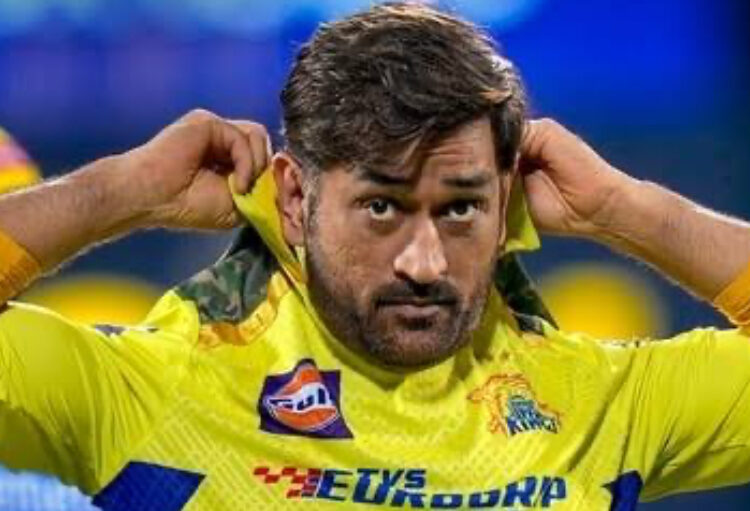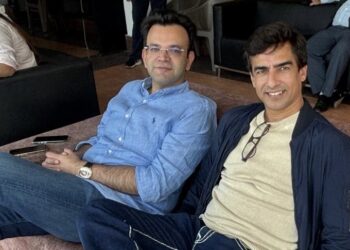As of now, MS Dhoni will be retained as the uncapped player in CSK for the 2025 IPL season as it appears that the partnership is unbreakable. Even when Dhoni retires eventually he would be roped in as a mentor as he has a lot of ‘interest’ in the team. He enjoyed a similar status when he was the Indian captain. He, however, redefined the rules and ruled as the boss of white ball cricket for an over a decade. Indeed, the bond between Dhoni and CSK is remarkably strong, and retaining him as an uncapped player speaks volume about the franchise’s commitment to him and his enduring legacy.
Dhoni’s transition to a mentoring role after his playing days are over seems like a natural progression, especially given his vast experience and deep understanding of the game. His presence as a mentor could provide invaluable support to the team, especially for younger players who can benefit from his insights and leadership style. Throughout his career, both with CSK and the Indian team, Dhoni has also redefined leadership in white-ball cricket. His monk-like calmness, strategic acumen, and ability to make crucial decisions under pressure have made him a respected figure in cricket.
With over a decade of dominance in white-ball formats, he has not only shaped the fortune of his teams but has also set high standards for future leaders. Even after retiring, having Dhoni as a mentor would allow CSK to maintain continuity in their culture and approach to the game. His ability to nurture talent and guide players in high-stakes situations could be a key factor in CSK’s success moving forward.
This kind of long-term relationship between a player and a franchise is rare, and it speaks volumes about Dhoni’s impact on CSK and the IPL as a whole. His legacy will likely continue to influence the team long after he hangs up his boots, ensuring that the partnership remains integral to CSK’s identity.
However, CSK’s long-standing reliance on Dhoni has made it challenging to identify and develop a suitable successor. This situation highlights a dual-edged sword: on one hand, Dhoni’s immense value and leadership provide stability; on the other, it can limit the team’s evolution and adaptability. The fact that CSK has struggled to find a viable replacement for such a legendary player after all these years says it all. It can create a sort of stagnation where the focus remains predominantly on Dhoni, potentially sidelining younger talent who might need more opportunities to shine. While it’s understandable to want to keep a player of Dhoni’s caliber around, it can inadvertently prevent the team from planning for the future.
Time may indeed be the key to changing this mindset. Once Dhoni retires, CSK may need to undergo a cultural shift to embrace a new era and prioritise talent development and succession planning. This could involve not only scouting and nurturing young players but also adopting a more flexible approach to leadership roles. Transitioning from a Dhoni-centric model to a more balanced structure will take time and careful management, but it could ultimately lead to a more sustainable future for CSK. The franchise has a strong foundation, and with the right adjustments, they can continue to thrive even after Dhoni’s departure. could make it difficult to groom a successor
As of now, MS Dhoni will be retained as the uncapped player in CSK for the 2025 IPL season as it appears that the partnership is unbreakable. Even when Dhoni retires eventually he would be roped in as a mentor as he has a lot of ‘interest’ in the team. He enjoyed a similar status when he was the Indian captain. He, however, redefined the rules and ruled as the boss of white ball cricket for an over a decade. Indeed, the bond between Dhoni and CSK is remarkably strong, and retaining him as an uncapped player speaks volume about the franchise’s commitment to him and his enduring legacy.
Dhoni’s transition to a mentoring role after his playing days are over seems like a natural progression, especially given his vast experience and deep understanding of the game. His presence as a mentor could provide invaluable support to the team, especially for younger players who can benefit from his insights and leadership style. Throughout his career, both with CSK and the Indian team, Dhoni has also redefined leadership in white-ball cricket. His monk-like calmness, strategic acumen, and ability to make crucial decisions under pressure have made him a respected figure in cricket.
With over a decade of dominance in white-ball formats, he has not only shaped the fortune of his teams but has also set high standards for future leaders. Even after retiring, having Dhoni as a mentor would allow CSK to maintain continuity in their culture and approach to the game. His ability to nurture talent and guide players in high-stakes situations could be a key factor in CSK’s success moving forward.
This kind of long-term relationship between a player and a franchise is rare, and it speaks volumes about Dhoni’s impact on CSK and the IPL as a whole. His legacy will likely continue to influence the team long after he hangs up his boots, ensuring that the partnership remains integral to CSK’s identity.
However, CSK’s long-standing reliance on Dhoni has made it challenging to identify and develop a suitable successor. This situation highlights a dual-edged sword: on one hand, Dhoni’s immense value and leadership provide stability; on the other, it can limit the team’s evolution and adaptability. The fact that CSK has struggled to find a viable replacement for such a legendary player after all these years says it all. It can create a sort of stagnation where the focus remains predominantly on Dhoni, potentially sidelining younger talent who might need more opportunities to shine. While it’s understandable to want to keep a player of Dhoni’s caliber around, it can inadvertently prevent the team from planning for the future.
Time may indeed be the key to changing this mindset. Once Dhoni retires, CSK may need to undergo a cultural shift to embrace a new era and prioritise talent development and succession planning. This could involve not only scouting and nurturing young players but also adopting a more flexible approach to leadership roles. Transitioning from a Dhoni-centric model to a more balanced structure will take time and careful management, but it could ultimately lead to a more sustainable future for CSK. The franchise has a strong foundation, and with the right adjustments, they can continue to thrive even after Dhoni’s departure.
















